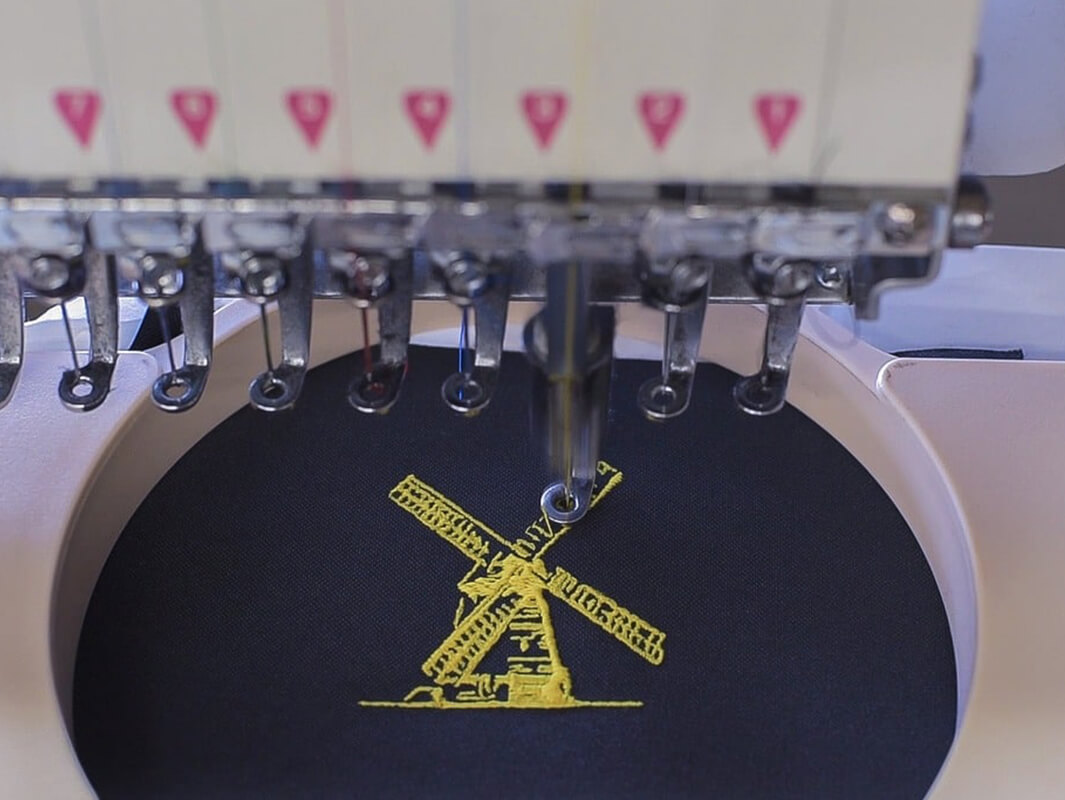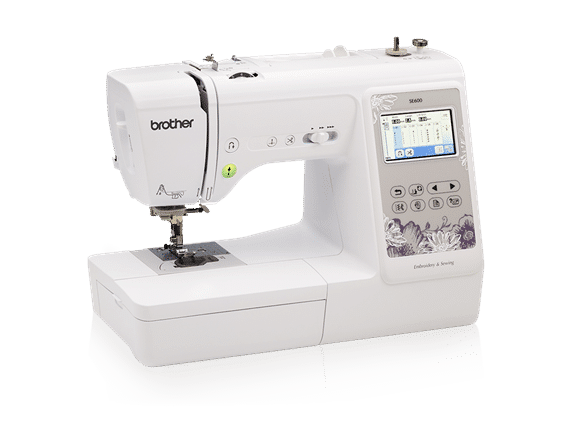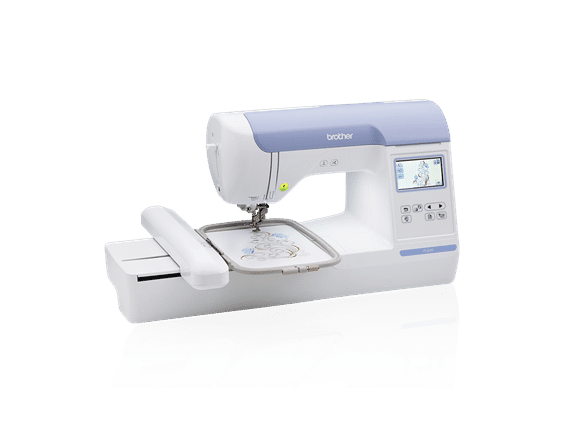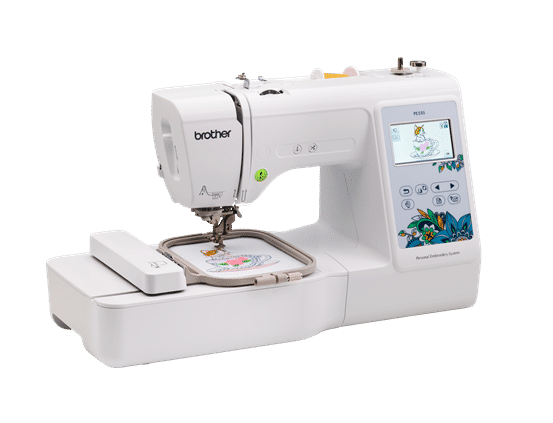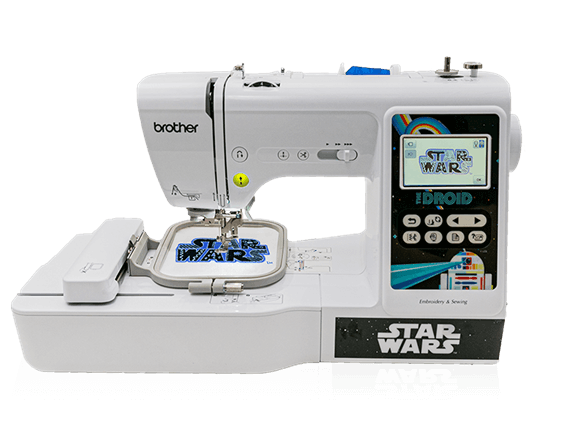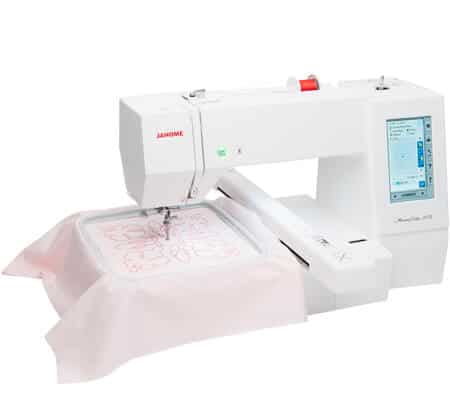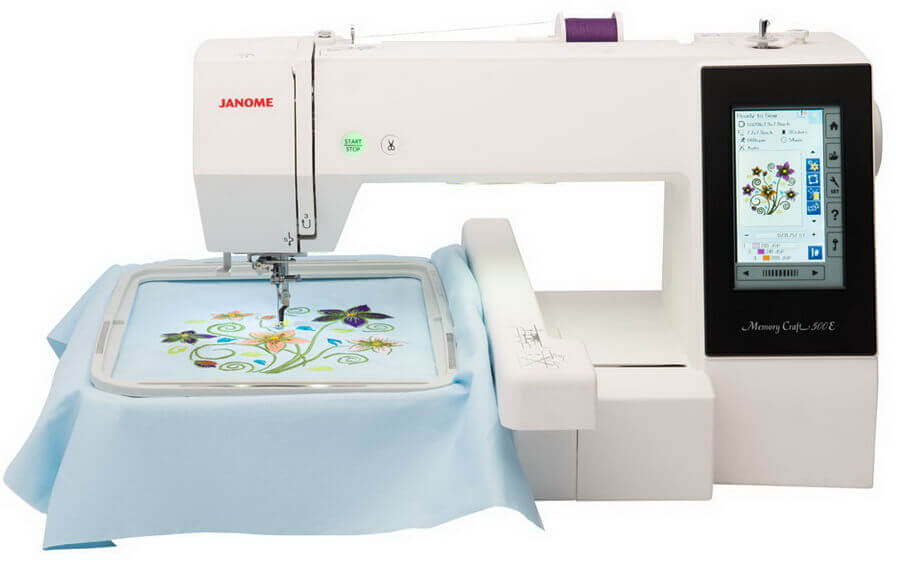Welcome back, embroiderers! If you are thinking about buying your first embroidery machine or simply would like to get a new one, this post is for you! Now, why would you buy an embroidery machine? Well, one of these might be your reason:
- You want to start a new embroidery business and you don’t really know where to start to choose a machine.
- Some of you might have already been working on an embroidery business and now you need another machine, but you don’t have much knowledge about the offer in the market.
- You love to embroider as a hobby and you’re starting to get a lot of work because your friends and relatives love what you can do, and they are ordering cute garments for their kids and such, so you need something to work faster, like a domestic machine.
- People that are dabbling in embroidery and want to start to get some hands on experience and practice with this art.
All these are perfect reasons! To me, embroidery is an art, and everyone that thinks so should be able to choose a machine wisely according to their needs, and not to be overwhelmed by needy sellers at a store, or even by the tones of information on the internet about this matter.
So, I am here today to encourage you and try to make things a little bit easier for you, specially if you have never bought one of these incredible tools before. Let’s have a look at the first steps, and everything we need to keep in mind.
Before buying, ask yourself:
- What kind of use are you going to give to your machine? Do you need it to start learning embroidery, or to sell a lot of works? This will be decisive, because it will set your aim either at an industrial machine or a domestic machine.
- What is your budget? How much money are you willing to spend on a hobby? Are you planning to get a second handed machine, so that you have enough to buy some accessories? Remember, it’s never only the machine. You will need some extra materials. So make your final budget including these other things. We’ll talk about them later!
- Do you need an embroidery only, dedicated machine? Or do you need something that can also sew? Do you use a big variety of designs? Can you understand a complex machine? Or will it be overwhelming for you, if you’ve never used one before?
- Be aware of the size of the hoop. How much space do you need to work? Do you change your embroidery sizes a lot? Would you need a big hoop, a middle-sized hoop, or maybe one of each? How big would you like your embroideries to be?
- What kind of projects are you going to work with? Is it enough to be able to work with 3 colored embroideries, or will you need to work with 7 or 8 colors at the same time? Think thoroughly about this, specially those who want to start an embroidery business.
I get the feeling that I am going to say this a lot, but it really is important: think about your needs, your work, your creative desires.
What kind of embroidery do you actually make? Or what kind would you like to try to do with your new embroidery machine? Is your budget on the same level of what you need? Maybe you want to spend less in the machine, and more in extra materials? Everything counts when you need to make your balance, so you have to acknowledge the advantages and disadvantages to decide for a machine that fits you perfectly.
Embroidery Machine Types
There are many types of embroidery machines on the market, with different levels of complexity. Here, I’ll tell you all the kinds:
- Tubular machines (for ready made garments): Tubular machines are specifically used for embroidering already made items such as caps, shoes, bags, or other items with volume, in opposition to stitching on flat cloth. They are made with strong, durable materials that allows them to work many hours straight, being a big but good long term investment.
- Industrial embroidery machines: Regular Industrial machines have all the same characteristics as the tubular machines, but they work on flat fabrics, all thicknesses and sizes in little time, effective and productively, but they demand a lot of space, and they are expensive. All in all, these are time saving, useful long term investments.
- Semi-industrial embroidery machines: This kind of machine may be the best choice for those entrepreneurs (some models even have the word “entrepreneur” on its name) who are in need of upgrading their productiveness and improve the quality of their designs, but they can’t afford an industrial machine, or they don’t have the physical space to have one. This type of machine is faster and capable of working on bigger sizes of fabric than a domestic machine.
- Domestic embroidery machines: Last but not least, a domestic machine has many advantages according to the price, comfort, size, adaptability, all great wanted qualities for those who are looking for an introduction to the embroidery world. Moreover, because of the popularity of this machines, all brands have a wide range to choose from, with a huge variety of prices and specifications, so there are some of this models that are found to be valuable even for a small second business or start up.
Brands and Models
Every brand has different quality levels of machines with some differences in their complexity and specifications. Brother embroidery machines are well known to be great domestic machines, with many different models and a wide range of prices, some of them really affordable, without losing performance.
Singer is also one of the top brands, both for sewing and embroidery. Other top of the line firms are Janome, Baby Lock, Bernette, Alfa, etc. All of these brands have all in one models that have the capacity for sewing and embroidering, and other models that are embroidery only, dedicated machines.
So, once again, your choice should only be focused on your needs, the nature of your work, the amount of money that you’re willing to spend, and why not, your aesthetic likes and dislikes.
In this post I will focus on those who are looking for their first or second machine, because I think those are the ones who need more help to decide. For more experienced embroiderers, I hope you still find this post useful by remembering and being walked by all the tips you may have needed once, and that you may also apply when you buy your next machine.
Now, lets see some examples, from different brands and models, for the domestic machines, so we can have a general idea of what is in the market this days.
Brother SE600
The Brother SE600 is a versatile machine that combines embroidery and sewing functions into one device. With its generous 4×4-inch embroidery area and a selection of over 80 built-in designs, this machine will enable you to embark on creative projects with ease. The color touchscreen simplifies design editing and customization, while the automatic threading feature makes the preparation process quick and hassle-free. Click here to see more information and price of the brother SE600.
Brother PE800
The Brother PE800 is a perfect choice for those who want to focus primarily on embroidery. With a larger 5×7-inch embroidery area, it allows you to take on bigger and more detailed projects. Its impressive collection of 138 built-in designs and 11 different fonts will give you ample variety to choose from and express your creativity without limits. Click here to see more information and price of the brother PE800.
Brother PE535
The Brother PE535 is a beginner-friendly embroidery machine that offers excellent value for money. With a 4×4-inch embroidery area and 80 built-in designs, this machine allows you to create creative projects easily and quickly. Its built-in USB port also gives you the freedom to import your own designs and expand your options even further. Click here to see more information and price of the brother PE535.
Brother LB5000S
The Brother LB5000S is an embroidery and sewing machine that caters to the needs of those who want to experience both art forms. With a 4×4-inch embroidery area and a selection of 103 built-in designs, this machine offers the versatility you need to explore various embroidery and stitching techniques. Click here to see more information and price of the brother LB5000S.
Janome Memory Craft 400E
The Janome Memory Craft 400E is an embroidery machine designed for beginners seeking a more specialized experience. With a 7.9×7.9-inch embroidery area and a collection of 160 built-in designs, this machine allows you to create more elaborate and complex embroidery projects. Its user-friendly interface and embroidery quality make it an excellent choice for those looking to take their creative projects to the next level. Click here to see more information and price of the Janome Memory Craft 400E.
Janome Memory Craft 500E
The Janome Memory Craft 500E is another excellent option for beginners seeking the most comprehensive embroidery experience. With a large 7.9×11-inch embroidery area and an extensive selection of over 160 built-in designs, this machine enables you to work on larger-scale projects with impressive detail. Its advanced technology and ease of use make it a valuable investment for those looking to explore the world of embroidery to the fullest. Click here to see more information and price of the Janome Memory Craft 500E.
What extras are included with our new machine?
The accessories included in your purchase might be what in the end will determinate your choice, specially if this is the first time that you buy one of these machines. The reason is because some of these accessories are a must, and you’ll have to get those separately if they are not included with the machine. Your budget will be affected by this extra items. Some kits include things that are not mandatory, such as a touch screen Stylus, an USB memory card with designs, a dust cover, a trolley, etc. But there are others that go hand in hand with our embroidery machine, like a set of tools, a set of needles, oil for the engine, scissors, a ripper or remover tool, presser foots, spool caps and pins, hoop clips, among many other useful accessories that might also be included. These are, what I think, the most relevant:
- Embroidery software
- Spool caps, pins, holders, nets
- Variety of presser foots
- Different sized hoops
What else will I need to start embroidering?
- Threads : Of course, you’ll need a beautiful, shiny, colorful set of threads (and yes, its quality does improve our creative experience). A spun polyester thread (regular sewing thread is not recommended and will fill the machine with fluff!), and the stabilizer of your choice. I prefer the sticky tear away stabilizer, but if you would like to use another type, you can buy an adhesive spray to fix it to your clothes. Another nice to have extras are thread racks and holders to organize our setup.
- Embroidery Designs: As a beginner in this thrilling field, having access to free embroidery designs that fuel your creativity and help you stand out in the market is essential. That’s where our website comes in! We offer a vast selection of carefully curated, free embroidery designs tailored to meet the needs of aspiring entrepreneurs like you. These designs will provide you with a solid foundation to start, saving you time and effort in searching for the perfect patterns.
Last advises before buying your new embroidery machine:
Do you know someone that already has one of these machines? Then try and ask him/her for some help, maybe they can let you practice with their machine and even tell you which accessories they would like to have, or what else did they bought besides the machine itself.
Investigate: look for videos of that particular model you are interested in, watch some tutorials, read the good and bad reviews. Shout out for those who are considering a second handed machine. You need to be thorough with the details.
First things first: find out the exact model of the machine you are being offered. Look it up in the manufacturer’s page to know if this is a current model or a discontinued product.
A discontinued product might become a headache when it comes to finding spare parts, and they will not be warranty covered. So in these cases, you’ll have to ask the seller for a full product trial.
Then, you’ll have to bring everything you need to do so, such as cloths, needles, threads and stabilizer to make some test embroideries. While at it, you have to be aware of weird sounds, changes on the thread tension, look at the arm calibration.
Pay attention to what happens when we stop and reboot the machine in the middle of the project.
Everything should work just fine. Since this might be your first time buying a machine, test it with someone that already knows how to use one and has some experience. Find in our new section information about embroidery machines and supplies. Check prices! If everything does work out perfectly, you might be doing a great purchase and saving some money. But if you discover that the machine has some flaws:
- If we are talking about an old model, that receives no manufacturer support, be careful. I would not advise you to buy that one. Instead, be a little more patient, look for other options, or even wait until you can save a little more money. Otherwise, you might be throwing your savings to the trash and you will have to start all over again.
- Else if the model is not that old but somehow it is not working properly, the price should be attractive, but remember that you will need to have it repaired and this will cost you. Anyway, this might still be a great opportunity if you’re certain that it can be repaired. You will also be able to find any spare parts you need and even some original accessories. Anyway, I would ask the owner to have it repaired, or at least get a technical diagnostic, then test it, and then buy it. You can never be too careful!
So far for today’s post, I hope you liked it and that you found it useful for making the right choice when the moment to buy your next embroidery machine comes. I sure had some fun thinking about these tips!
SEW you next time!
Stay safe!
Mary

